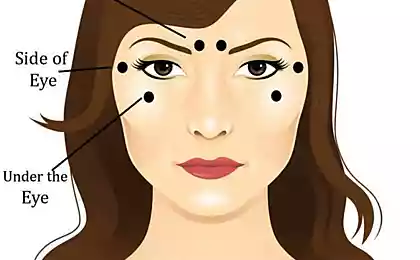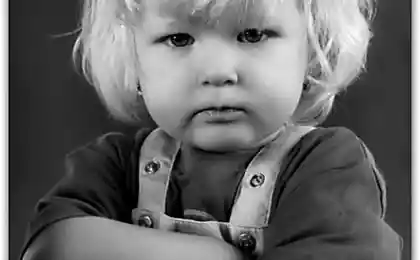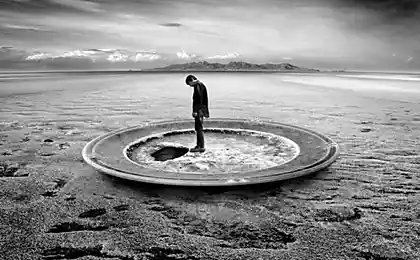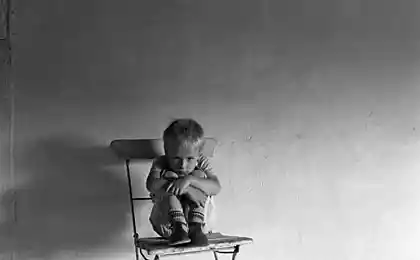445
I'm AFRAID to offend
I'm afraid to offend
"I don't say about themselves, their feelings and needs because they are afraid to hurt the other" –quite a common problem, rooted usually in childhood, when a child is appointed to be responsible for the feelings of adults.
"You are behaving badly and breaking your mother's heart"; "You brought my grandmother to a heart attack"; "you're dad's nervous breakdown."
I would not appreciate the correctness or incorrectness of the position of "afraid to offend", and would consider it from the point of view of flexibility and appropriateness.
Indeed, there is a dilemma: on the one hand, you can accidentally injure a person and care for others makes to remove from the contact itself, sometimes completely.
Seventy seven million three hundred eighty four thousand nine hundred ninety six
I think that this position is justified in cases when the other obviously weaker. Hurt in word or in action, someone who fully depends on me child, the elderly, incapacitated parents, who trusted me with his secret, the pain, the difficulty, and are therefore defenseless in front of me; someone with whom we are in unequal positions (teacher – student, for example). There really is sometimes the best option is to hold back and leave some its the truth and some of his feelings to himself.
But in the case of adults, capable, strong, "resource", equal to me – it always makes sense to protect them, hiding his own feelings, his point of view, which may not appeal to another, to hurt him? Excessive solicitude that we show to the feelings of others, often unnecessary, a throwback, is how to continue to carry a child that can already walk.
Old pattern from childhood inflexible: you should never say about yourself that may not appeal to another. But if he said something to blame, hurt, hurt, hurt.
But if there is a real fault?
We often confuse, merge into one concept of careful and respectful relations. Everyone deserves respect, Yes. But careful bereznoe to such an extent to push yourself for the sake of another – you need not everyone and not always.Usually, on the contrary, it harms the relationship, depriving them of life, truth, energy.
Yes, sometimes our reactions can hurt someone, to get into the sore spots. Interacting, we are not immune from such random mutual wounds. It's sad, but it is a reality. No matter how carefully we may observe traffic rules on the road, there is always the risk of an accident. When we do which hurt, hurt, hurt loved ones – it's sad, and of course, we are sorry and ask for forgiveness.
But it is important to remember that if we Express our position with respect, if you are talking about your feelings (maybe a really bad interviewee: "I'm mad at you", "I don't like your behavior, your words," "I disagree" and even "I don't love you") – it can't destroy the other.
Yes, making the contact itself, a statement about themselves and their real needs can sometimes affect the relationship so that they are exhausted, will fail. But if maintaining the relationship becomes more important than real, live people involved in this relationship – rather, it speaks of dependent on relationships than on their values. And not always a statement of their needs, though not very comfortable for the partner, threaten to destroy (or end) relationships.
Two million one hundred one thousand one hundred ninety three
When we care too much about the feelings of the other (adult, independent, capable, not dependent on us humans), this is such a terrible thing:we may not see another real, actual abilities and needs. If he needs my strength now? That I gave up on myself and took himself in hand, sliding his feelings away? However if he is so hard to make my feelings? Or he will take them with interest and will be grateful that the relationship became clearer, fuller, more honest?
Excessive care is sometimes a way to feel stronger, more important, stronger, smarter, and thereby unconsciously like "belittle" partner, assign it to the role of the weak, the ward – on the role of the child. And hidden from ourselves the sense that we care not really about the partner and about themselves – their "inner child", when something offended and not comforted, overloaded with excessive responsibility for the feelings and even for his life, health, well-being of adults. Its the wounded child part.
Very often the same pattern ("you should never say about yourself that might not like the other") is reproduced in the therapy and prevents the client to work with a psychologist.
It happens that the client feels guilty about psychologist for aggressive feelings and hide their negative reaction, afraid to offend. Despite the fact that the psychologist asks about them not to keep silent, because they are very important to the work.
When the most difficult, but we must also care about how it would be perceived by the psychologist what he thinks, will not get hurt if my feelings, my aggression, comes a stupor and think that it is a vicious circle and impossible to work: like to come to therapy with the problem of "fear to offend others," and psychologist too become afraid to offend…
But, oddly enough, it's a very important moment in the work, and it is just hidden way out of the vicious circle. This point is certainly worth discussing with a specialist, the joint discussion has a lot to give and clarify.
***
So, the people from childhood, loaded with guilt, often overestimate the injury of another (overrated because of their ravennati, its resonating pain) and underestimate the ability of another to cope with feelings, to experience sadatoshi, resentment, meet the truth in relationships, to bring this truth and stay in the relationship.
Therapy work with a psychologist – just the place where you can have this pattern to review, rethink, and inflexible, unchanging rule to make flexible: learn to distinguish between a situation where my job is needed and where it interferes with relationships, turning them into the cast and takes the life.
Author: Irina Abroskina
P. S. And remember, just changing your mind — together we change the world! ©
Source: www.b17.ru/article/34333/
"I don't say about themselves, their feelings and needs because they are afraid to hurt the other" –quite a common problem, rooted usually in childhood, when a child is appointed to be responsible for the feelings of adults.
"You are behaving badly and breaking your mother's heart"; "You brought my grandmother to a heart attack"; "you're dad's nervous breakdown."
I would not appreciate the correctness or incorrectness of the position of "afraid to offend", and would consider it from the point of view of flexibility and appropriateness.
Indeed, there is a dilemma: on the one hand, you can accidentally injure a person and care for others makes to remove from the contact itself, sometimes completely.
Seventy seven million three hundred eighty four thousand nine hundred ninety six
I think that this position is justified in cases when the other obviously weaker. Hurt in word or in action, someone who fully depends on me child, the elderly, incapacitated parents, who trusted me with his secret, the pain, the difficulty, and are therefore defenseless in front of me; someone with whom we are in unequal positions (teacher – student, for example). There really is sometimes the best option is to hold back and leave some its the truth and some of his feelings to himself.
But in the case of adults, capable, strong, "resource", equal to me – it always makes sense to protect them, hiding his own feelings, his point of view, which may not appeal to another, to hurt him? Excessive solicitude that we show to the feelings of others, often unnecessary, a throwback, is how to continue to carry a child that can already walk.
Old pattern from childhood inflexible: you should never say about yourself that may not appeal to another. But if he said something to blame, hurt, hurt, hurt.
But if there is a real fault?
We often confuse, merge into one concept of careful and respectful relations. Everyone deserves respect, Yes. But careful bereznoe to such an extent to push yourself for the sake of another – you need not everyone and not always.Usually, on the contrary, it harms the relationship, depriving them of life, truth, energy.
Yes, sometimes our reactions can hurt someone, to get into the sore spots. Interacting, we are not immune from such random mutual wounds. It's sad, but it is a reality. No matter how carefully we may observe traffic rules on the road, there is always the risk of an accident. When we do which hurt, hurt, hurt loved ones – it's sad, and of course, we are sorry and ask for forgiveness.
But it is important to remember that if we Express our position with respect, if you are talking about your feelings (maybe a really bad interviewee: "I'm mad at you", "I don't like your behavior, your words," "I disagree" and even "I don't love you") – it can't destroy the other.
Yes, making the contact itself, a statement about themselves and their real needs can sometimes affect the relationship so that they are exhausted, will fail. But if maintaining the relationship becomes more important than real, live people involved in this relationship – rather, it speaks of dependent on relationships than on their values. And not always a statement of their needs, though not very comfortable for the partner, threaten to destroy (or end) relationships.
Two million one hundred one thousand one hundred ninety three
When we care too much about the feelings of the other (adult, independent, capable, not dependent on us humans), this is such a terrible thing:we may not see another real, actual abilities and needs. If he needs my strength now? That I gave up on myself and took himself in hand, sliding his feelings away? However if he is so hard to make my feelings? Or he will take them with interest and will be grateful that the relationship became clearer, fuller, more honest?
Excessive care is sometimes a way to feel stronger, more important, stronger, smarter, and thereby unconsciously like "belittle" partner, assign it to the role of the weak, the ward – on the role of the child. And hidden from ourselves the sense that we care not really about the partner and about themselves – their "inner child", when something offended and not comforted, overloaded with excessive responsibility for the feelings and even for his life, health, well-being of adults. Its the wounded child part.
Very often the same pattern ("you should never say about yourself that might not like the other") is reproduced in the therapy and prevents the client to work with a psychologist.
It happens that the client feels guilty about psychologist for aggressive feelings and hide their negative reaction, afraid to offend. Despite the fact that the psychologist asks about them not to keep silent, because they are very important to the work.
When the most difficult, but we must also care about how it would be perceived by the psychologist what he thinks, will not get hurt if my feelings, my aggression, comes a stupor and think that it is a vicious circle and impossible to work: like to come to therapy with the problem of "fear to offend others," and psychologist too become afraid to offend…
But, oddly enough, it's a very important moment in the work, and it is just hidden way out of the vicious circle. This point is certainly worth discussing with a specialist, the joint discussion has a lot to give and clarify.
***
So, the people from childhood, loaded with guilt, often overestimate the injury of another (overrated because of their ravennati, its resonating pain) and underestimate the ability of another to cope with feelings, to experience sadatoshi, resentment, meet the truth in relationships, to bring this truth and stay in the relationship.
Therapy work with a psychologist – just the place where you can have this pattern to review, rethink, and inflexible, unchanging rule to make flexible: learn to distinguish between a situation where my job is needed and where it interferes with relationships, turning them into the cast and takes the life.
Author: Irina Abroskina
P. S. And remember, just changing your mind — together we change the world! ©
Source: www.b17.ru/article/34333/























